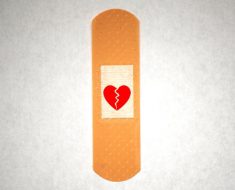Researchers say regular exercise can make people with depression feel better and, at the same time, improve their cardiovascular health.

People with depression who exercise regularly are far less likely to die of heart disease than depressed people who don’t work out.
Moreover, regular exercise can also be an effective antidepressant — even eliminating the need for medication in some cases.
The challenge for many depressed people, however, is that the illness makes finding the energy to exercise difficult.
“For example, dopamine plays a role in motivation and decreased levels of this neurotransmitter lead to feeling apathetic and fatigued,” Viola Drancoli, a New York clinical psychologist, told Healthline. “Many patients describe a sensation of ‘leaden paralysis,’ a sensation of heavy, paralyzed limbs. Even getting up to brush your teeth may feel like a challenge and has nothing to do with laziness.”
Researchers from UT Southwestern and The Cooper Institute in Texas studied 18,000 people and found that those with high levels of fitness at middle age were 58 percent less likely to die of heart disease later in life, even if they were diagnosed with depression.
The study was published in the Journal of the American Medical Association (JAMA) Psychiatry.
Exercise generally improves cardiovascular health.
In addition, Dr. Madhukar Trivedi, a study co-author and director of the UT Southwestern Center for Depression Research and Clinical Care, said exercise is known to reduce inflammation — a known culprit in the development of heart disease as well as many other illnesses.
In addition to cardiovascular illness, depression has been associated with a higher risk of diabetes, obesity, and chronic kidney disease.
“Exercise not only can treat depression, it can decrease negative outcomes,” Trivedi told Healthline. “It isn’t just a nice thing to do, but it can be used as a bona fide treatment,” particularly when part of a structured plan developed under the supervision of a medical professional.
“There is value to not starting a medication if it’s not needed,” added Trivedi in a press statement. “Being active and getting psychotherapy are sometimes the best prescription, especially in younger patients who don’t have severe depression.”
Overcoming barriers to exercise
Past research has shown that while exercising can be a challenge for people with depression, depressed individuals can perform at least three-quarters of the exercises they’re asked to do.
“Maintaining a healthy dose of exercise is difficult, but it can be done. It just requires more effort and addressing unique barriers to regular exercise,” said Trivedi.
“Besides the physical symptoms of depression there are the problematic thought patterns,” Drancoli added. “Feelings of worthlessness, helplessness, negative self-talk, or the conviction that things just don’t make sense represent barriers to establishing workout routines.”
Trivedi recommends that people who are battling depression set realistic, achievable exercise goals.
He offered these tips on how to reach those goals:
- Set aside a consistent time to exercise every day — but don’t get discouraged by stretches of inactivity. Resume activities as soon as possible.
- Keep a log to track your progress.
- Vary the exercises to avoid monotony. Keep the workout interesting and fun. “Exercise will help, but not if it’s something you don’t enjoy,” adds mental health counselor, Marissa Geraci. “If someone tells you to start running because it’s therapeutic but you’ve hated running since junior high gym class, it’s not going to help. You won’t look forward to it. You’ll make excuses for why you can’t or shouldn’t. And it can contribute to the cycle of beating yourself up for not doing something that you think you’re supposed to be doing.”
- Exercise with a friend. “Isolation can feed depression,” says Geraci. “Structuring your workouts with other people can be an added depression-booster.”
- Task someone with holding you accountable for maintaining the exercise regimen. This can be a workout buddy or, as Trivedi suggests, a doctor.
“If you can get the person to do something, a combination of the endorphins which the brain produces during exercise, the personal satisfaction of accomplishment of completing an exercise, the improvement in fitness, appearance, and body image, and the social interaction of exercising around other positive and like-minded individuals can reduce or eliminate symptoms of depression,” Robert S. Herbst, a personal trainer and wellness coach, told Healthline.
A winning combination
Arlene B. Englander, a Florida-based clinical social worker, told Healthline that, “The endorphins created by moderate to vigorous exercise produce a calming effect — sometimes earning them the title of the body’s Prozac — because they increase the amount of serotonin available within the neuronal synapses in our brains.”
“This infusion of endorphins can make it easier for us to think more positively, using cognitive behavioral therapy (CBT) to pinpoint thoughts that are causing us pain — the hopelessness and helplessness of depression — and challenge them in a logical, yet compassionate way,” she added.
An emerging form of treatment called behavioral activation therapy is a variation of CBT with a structured exercise routine at its core.
“In essence, the psychologist or therapist will place exercise into the patient’s calendar as a form of treatment,” said Dr. Royan Kamyar, founder and chief executive officer of OWaves, a startup company that uses technology to help people plan and meet their wellness and fitness goals.
While the latest study focused on middle-aged people, Trivedi said that the findings are also relevant to younger people with depression, including those in their mid-20s.
“This is the age where we typically see physical activity drop off because they’re not involved in school activities and sports,” Trivedi said. “The earlier you maintain fitness, the better chance of preventing depression, which in the long run will help lower the risk of heart disease.”
related stories





Source: Read Full Article





